The nuclear deterrent, based on four nuclear-powered, nuclear-armed ballistic missile submarines and supported by RAF ballistic missile early warning radar, is the fundamental factor regarding the defence of the UK.
Yet it is amazingly often overlooked. And when it is not overlooked, it is very misunderstood.
This article was submitted to the UK Defence Journal by Rebecca Campbell. The views expressed are those of the author and not necessarily those of the UK Defence Journal.
Rebecca is British and permanently resident in South Africa, where she works as a science and technology journalist, covering, among other things, the aerospace, defence and nuclear sectors.
She has a MA degree, with distinction, in International Relations from the University of the Witwatersrand in Johannesburg. Her thesis was entitled Armed Forces as Instruments of Foreign Policy: Some Case Studies. This paper is entirely her own opinions and does not reflect the views of her employers. Rebecca Campbell is not, and never has been, on Twitter or Facebook.
There seems to be an assumption it can be ignored because it seems to do nothing. Comparisons are difficult to make, because there is no precedent in human history for nuclear weapons.
But it is rather akin to a Briton in the late Victorian era ignoring the Royal Navy battlefleet of that time because it apparently did nothing. Between 1856 and 1914, the British battlefleet engaged in action only once – the bombardment of Alexandria in Egypt in 1882 (1).
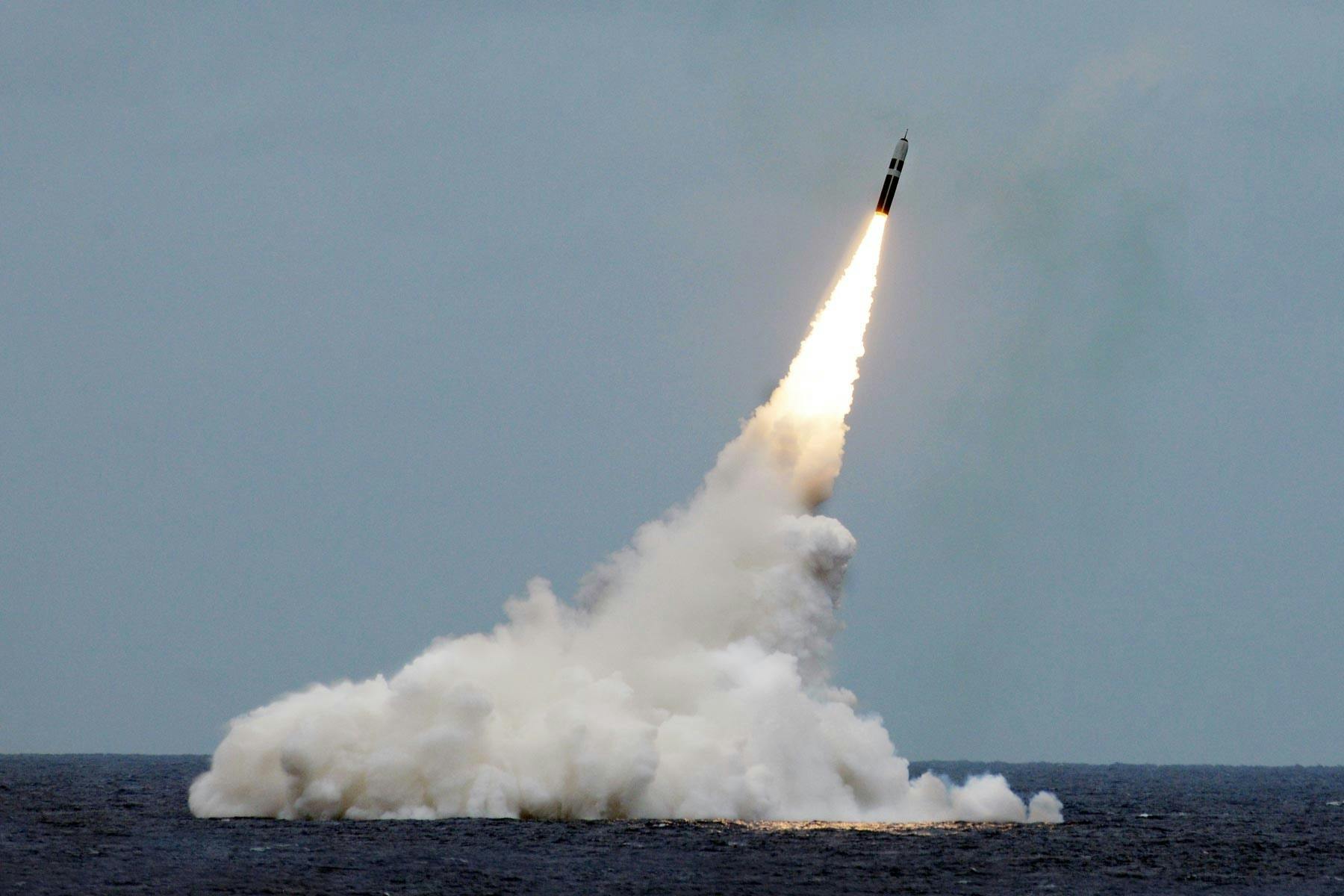
Even the mission of the nuclear deterrent is usually misconstrued. It is all too often assumed that it exists to deter nuclear attack on the UK. But that is not what the British Government says.
The Ministry of Defence ‘UK Nuclear Deterrent Factsheet’ (last updated in February 2018) actually says “The role of nuclear weapons is to deter the most extreme threats our nation might face” and, “The UK deterrent will retain the capability to deter the most extreme threats from anywhere in the world”(2).
There is no mention of nuclear attack, or even, more generally, of weapons of mass destruction. The term used is “extreme threats”. The Government’s webpage ‘The UK’s nuclear deterrent: what you need to know‘ is even more vague, stating that the retention of the British nuclear deterrent “makes clear to any adversary that the costs of an attack on UK vital interests will outweigh any benefits”(3).
And back in 2007, a report of the House of Commons Defence Committee noted that, in its late 2006 White Paper on the country’s nuclear deterrent, the British Government had stated that the UK would only use nuclear weapons in “self-defence”, under “extreme circumstances” to defend the country’s “vital interests”, without defining any of these terms, and that this ambiguity was deliberate(4).
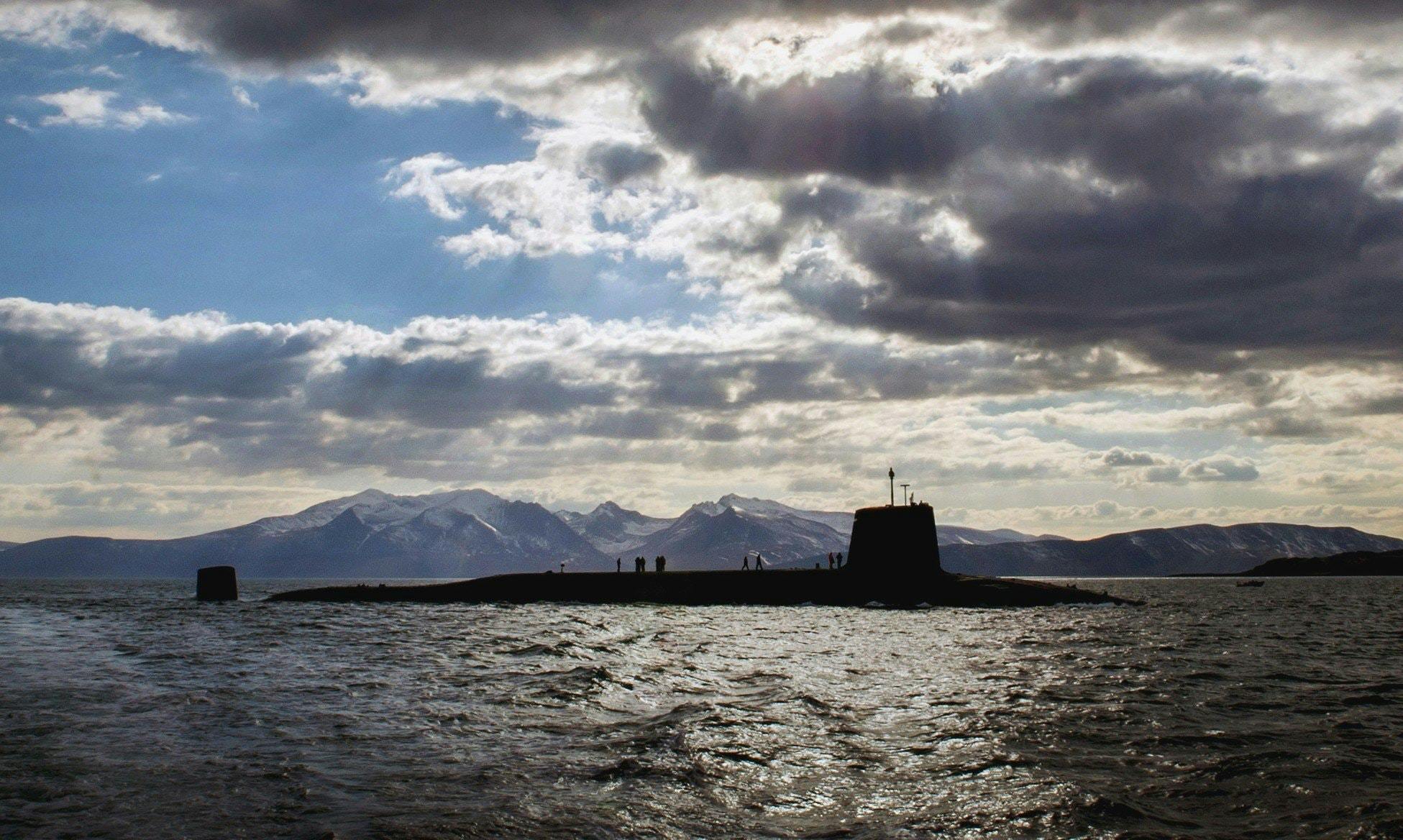
On ‘The UK’s nuclear deterrent‘ webpage, it states that a “potential adversary might miscalculate the degree of US commitment to the defence and security of Europe. An independent [UK] deterrent provides assurance that it can be used to deter attacks on our vital interests.”
It adds that the British deterrent also reinforces North Atlantic Treaty Organisation nuclear deterrence.(5)
It is also very important to grasp that Britain has always reserved the right to use nuclear weapons first. The UK has always explicitly rejected the idea of no-first-use of nuclear weapons. In its 2006 White Paper, the British Government stated that the UK “will not rule in or out the first use of our nuclear weapons”(6). Confusion comes from the fact that in 2015 Britain confirmed it would not use nuclear weapons against non-nuclear weapon states which were party to the Nuclear Non-Proliferation Treaty (NPT). But this undertaking did not apply to countries which were in material breach of the NPT (7).
During the 20th Century, the UK faced four “extreme threats” – mass starvation caused by submarine blockade; mass destruction and casualties caused by intense and indiscriminate aerial bombardment (with the possibly that that could include the use of poisonous gas – hence the universal issue of gas masks to civilians during the Second World War); invasion; and then, post-1949 (when the then Soviet Union detonated its first nuclear device), nuclear attack.
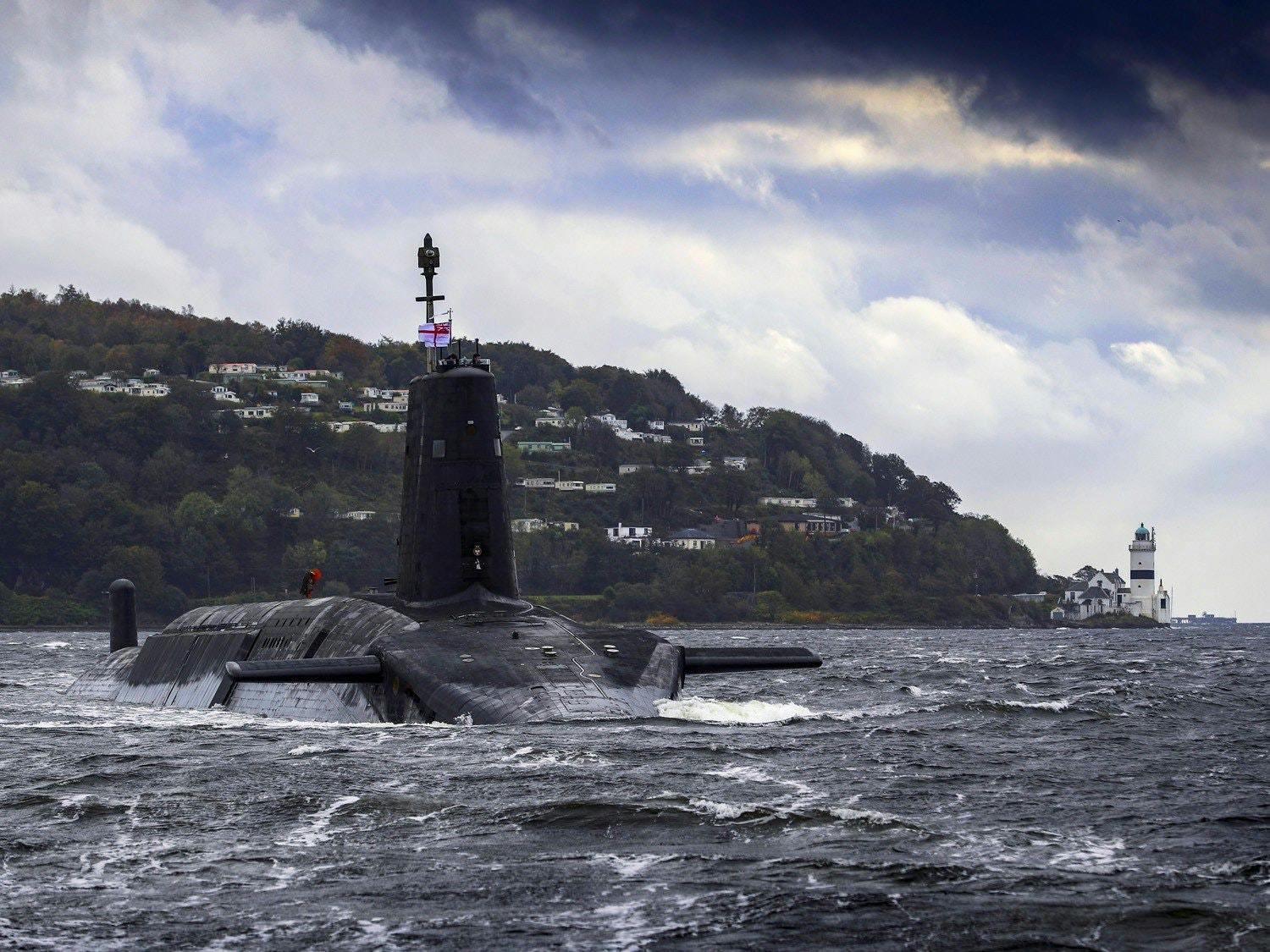
It is, I would argue, safe to assert that all of these extreme threats are covered by the nuclear deterrent. Any of these threats, if actualised, would cause mass death and destruction; only the nature of the deaths and the time scale on which they occurred would differ.
In support of my argument is the fact that, since the UK achieved its own nuclear deterrent (with the first device exploded in 1952 and the first weapons available in 1954(8)), the country has made no attempt to maintain a naval escort force capable of undertaking large-scale convoy escort, nor an air defence force capable of defeating large-scale indiscriminate conventional air attacks, nor army forces (even part-time reserve forces) dedicated to resisting invasion.
In further support of this position, the capabilities of the Trident D5 missile, which is what equips the UK deterrent force, should be noted.
According to the US think-tank the Centre for Strategic and International Studies (CSIS), the Trident D5 has a maximum range of 12 000 km and an accuracy (a circular error probable) of 90 metres (Polmar estimated the D5’s range as about 6 000 nautical miles)(9). The missile is thus long-ranged and very accurate, meaning that it can be used to attack precision targets (including national and strategic command and control centres) and not just used as a crude ‘city-buster’.
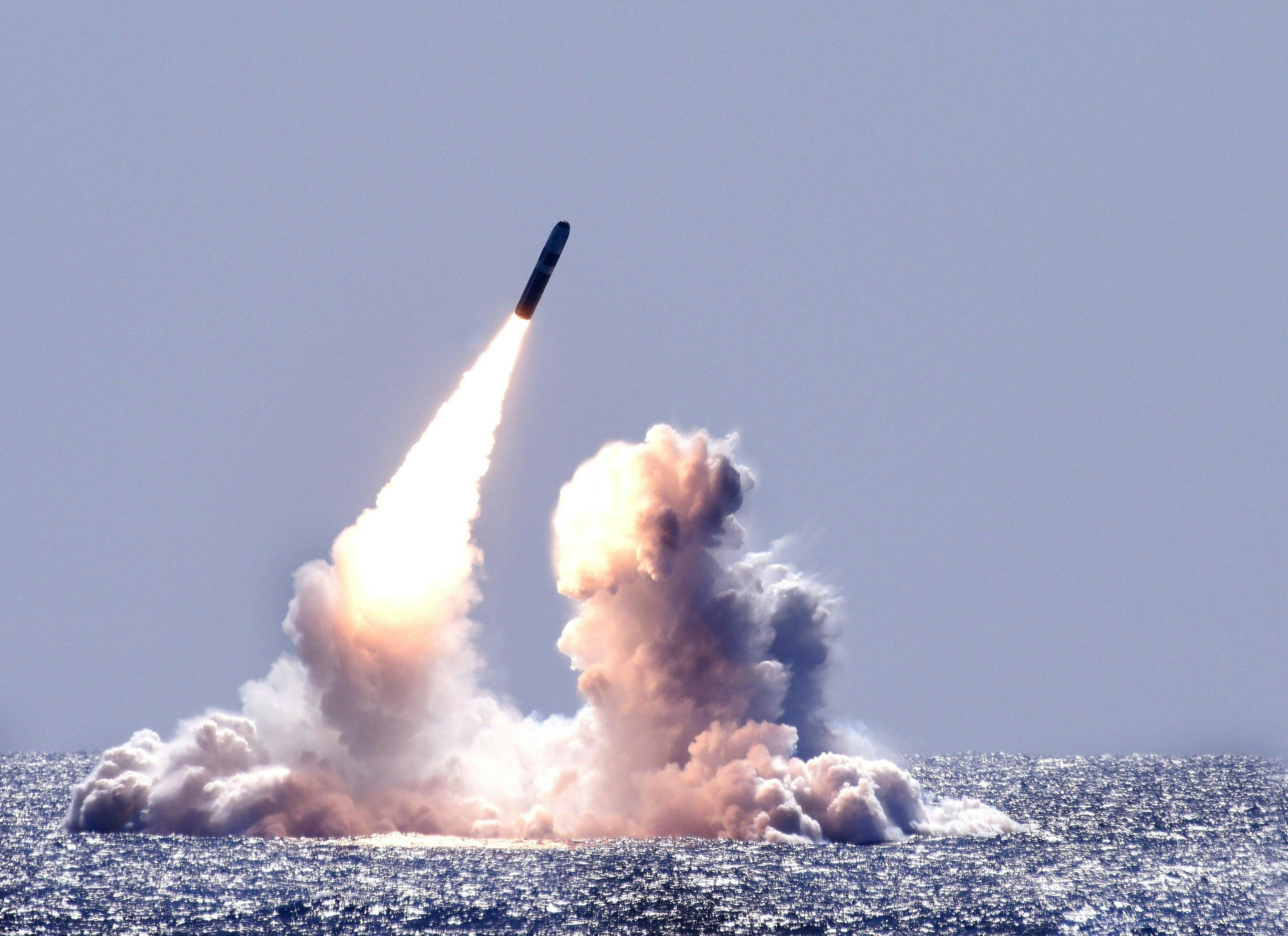
Moreover, the British nuclear warheads fitted to the Royal Navy’s Trident missiles have warheads whose yield can be varied (10).
Back in 2001, the website The Nuclear Weapon Archive estimated that the variable yields of British Trident warheads were 0.3 kilotons (kT), in the range from 5kT to 10kT, and 100kT(11). This allows the UK to tailor a response to a threat, and makes a response highly credible. No country could afford to risk triggering such a response: the dangers would be far too great.
Any firing instructions to Britain’s Vanguard-class ballistic missile submarines would be transmitted using UK equipment and UK codes. The SSBNs do not need to use America’s Global Positioning satellite navigation system.
The Trident missiles do not use GPS (it would be a ridiculous vulnerability if they did).
Of course, the nuclear deterrent cannot deter harassing attacks on British shipping, nor attacks on military convoys, nor carefully targeted conventional air attacks on non-nuclear-related strategic targets, all aimed at disrupting British conventional war-making capability while not posing a threat to the country’s survival or independence.

Nevertheless, the nuclear deterrent is the UK’s fundamental defence shield. To say that, far from doing nothing, the deterrent does everything, would be an exaggeration – but it would not be a gross one.
Finally, it must also be realised that, while hopefully the RN’s SSBNs will never fire their missiles in anger, Britain uses its nuclear deterrent all the time. It underpins the UK’s position in the world, including its permanent seat on the UN Security Council, and is a fundamental basis for the conduct of British foreign policy, just as the RN’s battlefleet was in the Victorian era, even though it only fired its guns in anger once in 58 years.
Notes
- Andrew Lambert “The Shield of Empire 1815-1895” in JR Hill (ed) The Oxford Illustrated History of the Royal Navy Oxford, Oxford University Press, 1995, p.184
- https://assets.publishing.service.gov.uk/government/uploads/system/uploads/attachment_data/file/510878/Fact_sheet-nuclear_deterrent_FINAL_v15.pdf accessed 18/04/2020
- www.gov.uk/government/publications/uk-nuclear-deterrence-factsheet/uk-nuclear-deterrence-what-you-need-to-know (last updated 19/02/2018) accessed 18/04/2020
- The Future of the UK’s Strategic Nuclear Deterrent: The White Paper House of Commons Defence Committee, Ninth Report of Session 2007-2007, p.30, www.bipsolutions.com/docstore/pdf/16247.pdf accessed 18/04/2020
- See note (3)
- See note (4)
- Claire Mills and Oliver Hawkins “Replacing the UK’s ‘Trident’ Nuclear Deterrent” https://commonslibrary.parliament.uk/research-briefings/cbp-7353, 11 July 2016, accessed 18/04/2020
- Norman Polmar Strategic Weapons: An Introduction Crane, Rusack & Company, New York, 1982, p.19, p.63
- https://missilethreat.csis.org/missile/trident/; Polmar, Appendix C, p.118 (see note (8))
- See note (4)
- https://nuclearweaponarchive.org/Uk/UKArsenalRecent.html, dated 30/04/2001, accessed 18/04/2020
- See note (2)




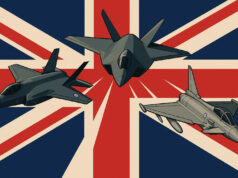
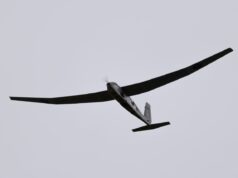



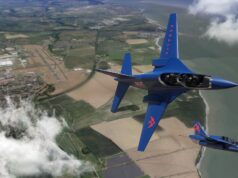

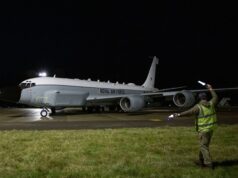
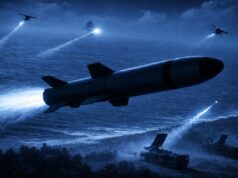

A lot of people argue that this capability be scrapped as we can rely on the Americans. I’m not so sure we could, but even on top of that. There is no guarentee the money would be reinvested in the armes forces. It would go straight into health, welfare and clearing the black hole of debt and public sector pensions.
In my view we should do what the French did and make our own. It’s NEVER a good idea to rely on another nation’s technology and or cooperation for your nuclear deterrent. It just sounds like a fundamentally flawed approach.
….or partner with similarly sized/positioned countries. A partnership with the french might make sense. For nuclear deterrent, we are not competing with them since there is no market, between us we build and run 8 boats with sufficient missile stock. we can be responsible for our own warheads as we are now. We have the same interests since we are right next door to each other.
Indeed. I honestly think that we should develop our own once Trident II nears its end retirement. That means we need to start researching right now.
Although I generally support the idea of sovereign capability, I am not sure it matters so much in this instance: Trident is a one use weapon so we don’t need a huge stockpile, even though a few spares in our physical possession would be sensible. The case for keeping the deterrent is unarguable. Britain was the first country to be subject to strategic bombing (ww1 Zeppelin’s), cruise missile attack(V1) and ballistic missile attack (V2). We need to deter any repetition. Nuclear deterrence works: contrast the cautious approach to North Korea with the gung ho attack on Iraq, the latter known not to have nuclear weapons.
I am still not convinced by the government’s Trident Alternatives Review of 2013 that concluded that renewing Trident was the best and most cost effective option for Britain. Alternative systems were dismissed with little real analysis, the whole exercise looking like an ex post facto justification of a decision taken much earlier.
If hypersonic engines become a reality, then we might be able to develop a viable sovereign alternative at a lower cost.
I think we should start a missile and bomb group in BAE. We still rely on America to make our ordenance for us as well as MBDA.
Nuclear deterrent should be included in this.
We design and build the warhead, and the submarines the really important parts. It doesn’t matter one bit if the missile is American. Why waste even more money on developing something we don’t need.
I think we kind of rely on the americans anyway for the missile technology but your point is right. we cut the capability and divert the budget….but the diversion will be to non-defence budgets. In my mind we increase the budgets and increase taxation to pay for it. Sorry, its the only way….
The money would almost certainly not be reinvested in the conventional forces beyond a few symbolic crumbs from the table. We have not funded conventional deterrence properly for decades and scrapping Trident is not going to change this. Realistically the only nations that pose a genuine threat to the UK are nuclear powers (e.g. Russia). Believing that we can rely on hollowed-out conventional forces to deter them is just delusional in my opinion.
Realistically the U.K. armed forces would be able to manage Russian peer on peer. The issue would come from the tyranny of distance if we decided to be the only nation to support a small Russian neighbour as we would be trying to operate in Russia’s back yard. The same thing would happen if Russia it tried to act within the the UK back door. The very big difference is that if we were ever to operate in say the Baltic’s it would be as part of an alliance that dwarfs Russia.
The truth is Russia is a barracuda darting around the mouth shark taking the crumbs that the shark does not really care that much about. The only difference is the barracuda is poison and in the final act could take the shark with it.
I’m afraid that love it or loath Brexit has torn up the rule book. Trade negotiations are key at the moment and defence is part of that. We will now move into an era of self sufficiency however unwise and costly that might be. It would be astonishing if various countries did not try to throw their weight around in one way or another. Interesting times ahead.
Whilst a deterrent is needed it should be independent especially of the Americans. Presidents come and go and whilst they are there are frustrated because they normally have their hands tied behind their backs. Americans are not necessarily as interested in the freedom of democracies as they should be.
An interesting and well-considered piece. Although I’m not sure it deters convenient threats at all. The author states:
“Of course, the nuclear deterrent cannot deter harassing attacks on British shipping, nor attacks on military convoys, nor carefully targeted conventional air attacks on non-nuclear-related strategic targets, all aimed at disrupting British conventional war-making capability while not posing a threat to the country’s survival or independence.”
On this basis, an enemy could sink a military convoy, and start making targeted strikes at key airbases, ports, and infrastructure targets, and we wouldn’t respond with nuclear weapons. But if this happened it would signal an almost total crippling of our conventional forces.
We have no potential opponents close enough or powerful enough to do us serious damage with conventional force alone.
Even in some bizarre world where NATO fell apart and no European nations came to our aide, we could fend off the Russians in a conventional conflict.
On the other hand, in the even more unlikely event of a 1 v 1 conflict with China, they would be unable to project Naval power into the Atlantic or Mediterranean without North American and European support.
The Victorian battle fleet was rarely used because they outmatched all potential opponents, but also because there was no taboo in actually deploying it.
Any conventional power knew that if they provoked war with Britain, that fleet would be off their coast or even in their harbours within a few weeks. Usually things didn’t escalate that far because even a handful of modern frigates or armoured cruisers were enough to show intent or out-match weaker opponents.
Nuclear weapons deter nuclear or chemical attacks, nothing else.
We are a power in decline, that is blatant for everyone to see. But by your logic just because we are going to be overtaken by larger nations then we should give up trying to defend ourselves? CASD is the ONLY thing that matters, our last line of defence. Pretty much everything else in the RN’s inventory is offensive in nature and thus optional.
Dont bite, he is a troll who waffles more anti-English spew than the usual SNP knuckle dragger.
Yaaaaaaaawn……sorry did you try to say something?
Wasnt that a quick reply, how sad.
Harold. Your diatribe always puts a smile on my face. Nice to know the UK is still worth an attempt to undermine it.
Harold has never achieved what he thinks he deserves, and it may be he likes to apportion blame to the English, as oppossed to his own sad, below standard abilities. Some trolls are angry at external forces and never like to see their own inadequences.
This.
It’s England’s fault Harold can’t get a girlfriend.
It’s England’s fault Harold is a 45 year old man living with his mum, spending all his time in his room trolling online.
It’s England’s fault Harold has no qualifications and can’t/won’t get a job.
Ohh so it’s exploitative landlord taking the wages of the worker.
@H (Lord Haw-Haw II)
So property brought with Putin’s laundered money!
It’s not a job interview old man, we don’t need a very boring CV.
Oh dear, how sad, never mind.
@Troll H
You make all this Trolling for nothing! Really!!
Obviously you are rewarded well by your Master Putin!
Here we go again, the lack of subject matter knwowldge is quite obvious, no matter how much that lack of knowledge is desperatly diverted by the usual troll claptrap of Scottish Independence, nationalist nonsense (I do remember a previous national socialist party) and a sad old man’s mad mutterings. May I present to you Harold, also known on STRN as Iqbal, a sad troll who needs some friends and a bit of fresh air.
Not in your lifetime Harold, Bozza has just vetoed any potential referendum for the next 40 years I believe!!!!!
I suppose the current lockdown is normal routine for you. Sat at home, alone, no friends or visitors, staring at the internet 15 hours a day…..quite sad, but don’t worry there are organisations which can assist you.
Very very quick reply, please refer to my initial post….how sad and lonely you must be.
I once more refer you to my initial post…..
YOU Lord Haw-Haw II, would of been Sprouting the same Fake argument in 1930,’s just like the Real Lord Haw-Haw did at the time! He met his fate by being hanged!
Harold-don’t put too much faith in Polls. I personally think Brexit was a mistake and has ledt an administrative nightmare to untangle. When people sit down and REALLY consider what a disaster the break up of our centuries old Union would entail, then by comparison they will realise that the Brexit mess is put the proverbial picnic by comparison
sorry spellos
Awa n shite ye wee dafty ? ?? , 54% of shite , the polls ?????? aye cos the polls are always right . ?????????? Get yersel doon tae wings over Scotland son ??either that or get a job with 77th brigade they could use you??
Sad knobber……..ha ha ha ha haaaaaaaa
Good Morning Harold. I believe that Scottish independence is neither inevitable nor desirable so dispute your assertion as a given. Britain’s Nuclear detterent is simply necessary insurance. The UK has been left with this burden because of its historic place on the world stage but also as it retains its status as a global player from which it derives much of its living. As for South Africa where I am also a Briton in permanent residence, strangely enough, we did have an independent nuclear capability during the last years of the Nationalist government. Although details are sketchy it would have been based around small Nuclear devices delivered by the SAAF-probably from modified Mirage F1’s or the Israeli derived Kfir. This capability was abandoned in the transition to the 1994 elections.
For the UK to abandon its Nukes and rely on France or the USA for its ultimate defence will never happen unless we ever get a Corbyn style government,thankfully an unlikely scenario
Mate I fear you are wasting your time as Harold knows very little about military matters, and certain,y nothing about overseas and foreign military issues. He is just a sad SNP sheep troll who only ever posts on stories about Jockland where he can froth, whine, whinge and generally troll. As for SA, love it, had a great 6 months exchange in Bloemfontein with 44 Bde…… spelt incorrectly I guess lol.
Howsit Airborne-spelling of Bloemfontein spot on and I am sure you know how to pronounce it correctly too-Bloem as in Schtoom(sp?) a short sound, not as Sky News presenters who call it Blooomfontein 🙂 All the best
ps btw Airborne-were you seconded, on exchange or training the locals in Bloem?
Exchange…great 6 months with 44 Bde PF, and got to do the Comrades Marathon! Now that was hard lol
Harold.
Just so you know, I saw your name and ignored whatever you wrote and just scrolled to other posters.
Yes, your opinion is really not important. You are easily ignored.
Keep posting, while others live their lives and debate in a sensible manner actually discussing the pros and cons of the subject matter of this site.
OMG one of the most immature replies I have seen for some time! Please reply as I am feeling the love to help the afflicted.
Great article again highlighting U.K. independence over its operation , subs built by us, bombs built by us, base built by us, crew by us , ?? Dispels usual myths used by usual Marxists who love to make false claims about it being reliant on the Americans. Even the missile although US built and serviced if it came to it could be maintained and serviced by HMG it’s not a technical issue it’s a money issue very expensive starting from scratch.
I don’t think that’s really true, like any data set it depends how you cut the thing. If you cut it from around 1000 years of history, we are far more influential now than during much of history ( after all we were a de facto tax machine for a french speaking dynasty of a good portion of that timeframe) if you go for say 200 year most of that saw the U.K at the height of empire when Britain was unchallenged as the most powerful nation in the world, ruling the largest empire the world had ever seen..then yes we a declining power. If you take the last 50 years then we are actually far more influential and powerful now than the broken basket case nation of the 1970s that looked like it was heading into a poverty stricken powerless nation ( sort of Northern European version of Greece ).
so no we are not a declining nation we are a nation that transitioned from an Empire to a stable and prosperous nation that is one of the richest nations in the world and has a great future and still has the power to influence the world for the good if it so wishes.
You say that the deterrent won’t be welcome in Scotland but I imagine that thousands are employed at the base and they add significantly to the local economy.
How would the Scottish Government replace that?
They can’t can they! The unemployment rates will increase but the SNP will blame Westminster, the English, the weather, the……..delete/insert
Bite, snap, froth…..you are on my hook and I will dictate when you bite….
Interesting little read.
Seeing the perspective as written from a foreigner makes it more so to me.
I like the analogy to the Victorian Navy, as a history buff, very well put.
”In its 2006 White Paper, the British Government stated that the UK “will not rule in or out the first use of our nuclear weapons”‘
I remember a programme from the back end of the 80’s called ”the Nuclear age”. Does anyone else?
The Uk’s power has stopped declining in my opinion. No new powers are stepping forward; population growth per se does not equate to overall power. If present trends continue UK military power will grow a bit, and its soft power will grow even more. Britain seems to be the only nation hell-bent on self-castigation.